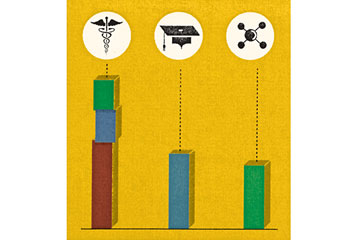Federal government approves 1 year of Medicaid coverage for Texas mothers
Beginning March 1, low-income Texas mothers can receive Medicaid coverage for one year after childbirth. The federal government approved Texas’ extension Jan. 17. Medicaid covered nearly half of Texas births in 2022, according to data from the Kaiser Family Foundation. Yet low-income women are currently eligible for two months of postpartum coverage.
New and existing enrollees will be eligible for the extension. Women whose Medicaid coverage expired before March 1 will be automatically re-enrolled and receive coverage for 12 months after their pregnancy ended, according to Gov. Greg Abbott's office. Over 137,000 new parents will benefit from the extension, according to the federal Centers for Medicare and Medicaid Services.
“This is a fantastic step forward to support healthy moms and babies,” said Diana Forester, the director of health policy at Texans Care for Children, in a statement.
exas is the 43rd state to extend postpartum Medicaid coverage to 12 months. The change is a top recommendation of the Texas Maternal Mortality and Morbidity Review Committee, which documented rising rates of maternal deaths and severe complications in its 2022 report. Maternal health advocates have pushed for the extension for years, but proposals stalled as lawmakers argued over coverage for women who had abortions.
More From Community Impact:












